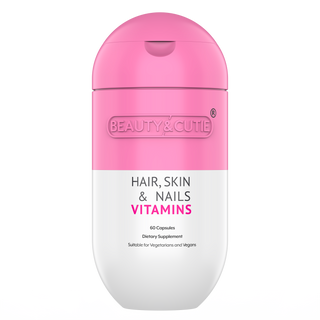Both pills and gummy vitamins are well-liked dietary supplements that provide consumers with a number of health advantages. While pills have traditionally been the preferred form of vitamin supplementation, gummy vitamins have recently seen significant growth in popularity. Finding the supplement that is ideal for you might be challenging because each type has a unique mix of benefits and drawbacks. We'll examine the pros and cons of gummy vitamins and pills in this post to help you choose the supplement that's best for you.
What Are Gummy Vitamins?
Gummy vitamins are a type of dietary supplement that is formulated in a chewable, candy-like form. They are typically available in a variety of flavors and colors, making them appealing to both children and adults. Gummy vitamins are a convenient and tasty way to get the nutrients you need, and they are a great option for people who have difficulty swallowing pills.
What Are Pill Vitamins?
Pill vitamins, on the other hand, are a more traditional form of dietary supplementation. They come in a variety of shapes and sizes, with some being easier to swallow than others. Pills typically have a longer shelf life than gummy vitamins and are available in a wide range of dosages and formulations to meet specific needs.
What Are The Differences Between Gummy Vitamins and Pill Vitamins?
One of the main differences between gummy vitamins and pill vitamins is their composition. Gummy vitamins often contain more sugar and calories than pill vitamins, which may be a concern for individuals watching their sugar and calorie intake. Additionally, gummy vitamins may not provide the same level of nutrients as pill vitamins due to their limited space for active ingredients.
On the other hand, pill vitamins are often more cost-effective and have a longer shelf life than gummy vitamins. They also provide a wider range of dosages and formulations, allowing individuals to customize their supplementation to their specific needs. However, pill vitamins may be more difficult for some people to swallow, making gummy vitamins a more appealing option for those with this concern.
Ultimately, the choice between gummy vitamins and pill vitamins comes down to personal preference and individual needs. It's important to consider the pros and cons of each type of supplement and consult with a healthcare professional to determine which option is best for you.
What Are The Pros and Cons Of Gummy Vitamins?
Pros:
- Convenient and easy to take
- Tasty and appealing to children and adults
- Great option for people who have difficulty swallowing pills
Cons:
- May contain more sugar and calories than pill vitamins
- Limited space for active ingredients may result in lower nutrient levels
- May be more expensive than pill vitamins
What Are The Pros and Cons Of Pill Vitamins?
Pros of Pill Vitamins:
- More cost-effective than gummy vitamins
- Longer shelf life than gummy vitamins
- May contain higher levels of nutrients than gummies
Cons of Pill Vitamins:
- May be more difficult for some people to swallow
- Requires water to swallow
- May not be appealing to children due to their taste and texture
Factors To Consider When Choosing Between Gummy Vitamins and Pills
When choosing between gummy vitamins and pills, there are several factors that you should consider. Firstly, you should think about your dietary needs and restrictions. If you are watching your sugar and calorie intake, pill vitamins may be a better option for you. However, if you have difficulty taking pills or want a supplement that tastes good, gummy vitamins may be a better option.
You should also consider the type of nutrients you need and how much of them you require. Gummy vitamins are generally limited in the number of active ingredients they can contain, whereas pill vitamins offer a wider range of dosages and formulations. If you have specific nutrient needs, such as iron or vitamin D, pill vitamins may be a better choice.
Lastly, you should consider your budget and personal preferences. Gummy vitamins tend to be more expensive than pill vitamins, but they may be worth the extra cost if you prefer their taste and texture.
Other Reasons People Prefer Pills vs Gummies
In addition to the factors mentioned above, some people prefer traditional vitamins due to them being potent and their lack of added sugar. Gummy vitamins often have a fruity smell that can be off-putting to some individuals. On the other hand, pill vitamins do not have added flavors or sugar, which may be preferable for those watching their sugar intake or looking for a more straightforward supplement.
Furthermore, certain vitamins and minerals may not be as effective in gummy form. For example, some studies say that the heat involved in the gummy-making process can degrade the potency of certain nutrients. This is not a concern with pill vitamins, as they are not subject to the same processing.
Are There Any Alternatives To Both?
While food is always the best way to get your daily intake of vitamins and nutrients, it's challenging to get all the nutrients you need through diet alone. If you are looking for an alternative to both gummy vitamins and pill vitamins, liquid supplements may be a good option. Liquid supplements tend to be easier to swallow and can be absorbed by the body more quickly than other forms of supplements. However, liquid supplements may not be as convenient as gummy vitamins or pill vitamins, and they may not be as readily available in stores.
Conclusion
Whether you choose gummy vitamins or pill vitamins depends on several factors, including your nutrient needs, personal preferences, and budget. While gummy vitamins may be more appealing to those who have difficulty swallowing pills or prefer a fruity taste, pill vitamins offer a wider range of dosages and formulations for those with specific nutrient needs.
Additionally, some people prefer pill vitamins due to their potency and lack of added sugar. However, for those who struggle with both gummy and pill vitamins, liquid supplements may be a viable alternative. It's worth considering all your options, including capsules, to determine which supplement type is the best fit for you and your health goals.
Final Thoughts
At Beauty and Cutie, we know that looking and feeling amazing is crucial. That's why we created a supplement packed with essential vitamins, minerals, and amino acids to rebuild and promote optimal cell production. Our supplement will enhance hair, skin, and nails, leaving you feeling beautiful and confident. Try it today and see the difference for yourself!
Sources
- https://www.healthline.com/nutrition/gummy-vitamins
- https://www.uclahealth.org/news/should-you-take-gummy-vitamins
- https://www.medicalnewstoday.com/articles/do-vitamins-expire
*These statements have not been evaluated by the Food and Drug Administration. This product is not intended to diagnose, treat, cure or prevent any diseases.


